Samsung Galaxy Book 3 review: a great laptop if the price is right
Samsung's entry-level Galaxy Book is great... for the right price
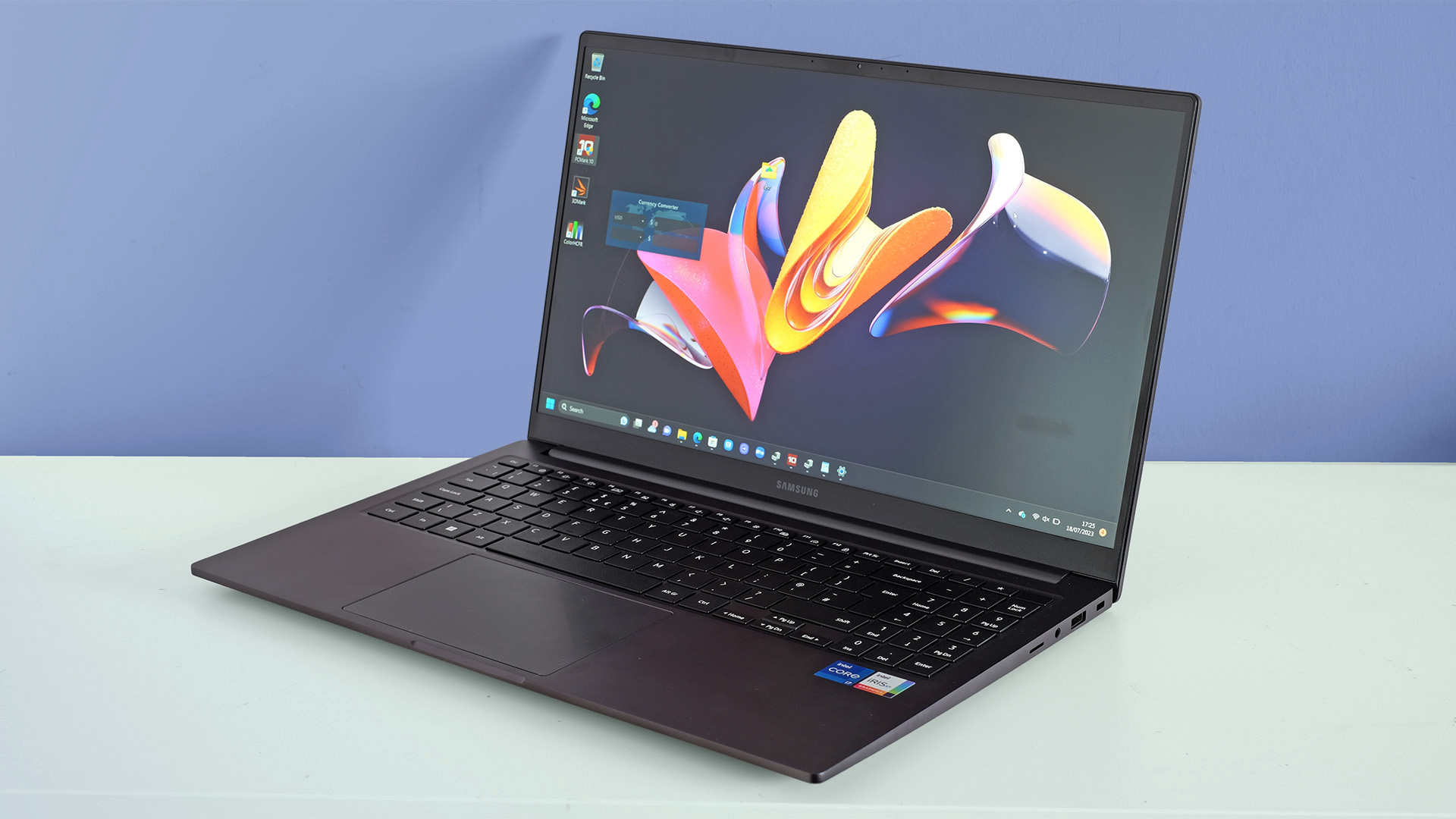
Samsung’s more affordable style laptop seems made for families and students. At its entry-level spec it feels like a much pricier laptop, which is great. However, its build and display shortcomings stand out more in the higher-spec variants, which make less sense to consider. It's a great laptop if the price is right and a below average one if not.
-
+
Classy design
-
+
All-day battery life
-
+
Comfortable keyboard
-
-
No keyboard backlight
-
-
Undersaturated screen
-
-
Plastic touchpad
Why you can trust T3

The Samsung Galaxy Book 3 is the kind of laptop you might guess Samsung would not make. It's fairly affordable productivity laptop, the kind a family might buy for odd jobs. And it's only a whisker away, in terms of price, from being in a shout as one of the best laptops under £500.
The best bit is that it looks almost as smart as the PCs Samsung sells at several times the price. Conversely, however, bad bits include a fairly colour-sapped screen, build quality that doesn't match Samsung's best for rigidity, and a slightly squeaky-feeling plastic touchpad.
However, the Samsung Galaxy Book 3 can square up to budget titan ranges like HP Envy, Lenovo Yoga 7 and Microsoft Surface Go and hold its own in most categories. And that ain't bad. It might not be one of the best laptops in existence, but does Samsung's more affordable laptop earn a place?
Samsung Galaxy Book 3: Price & Availability
Now that we're in 2024, you might be wondering why this isn't a Samsung Galaxy Book 4 review, as that's since been announced. Well, product availability can be slow and despite the Galaxy Book 3 having been on sale for a long time now, it's a bit of a bargain - which makes it potentially even more worthwhile in tracking down.
In the UK the Galaxy Book 3 is listed on Samsung's site as £649 in its lowest configuration, but is actually available for even less at the time of writing. In the US it's listed starting from $999 but, again, is available for much less. In Australia, meanwhile, Samsung doesn't sell laptops so you're not likely to ever see one of these.
Samsung Galaxy Book 3 review: Design
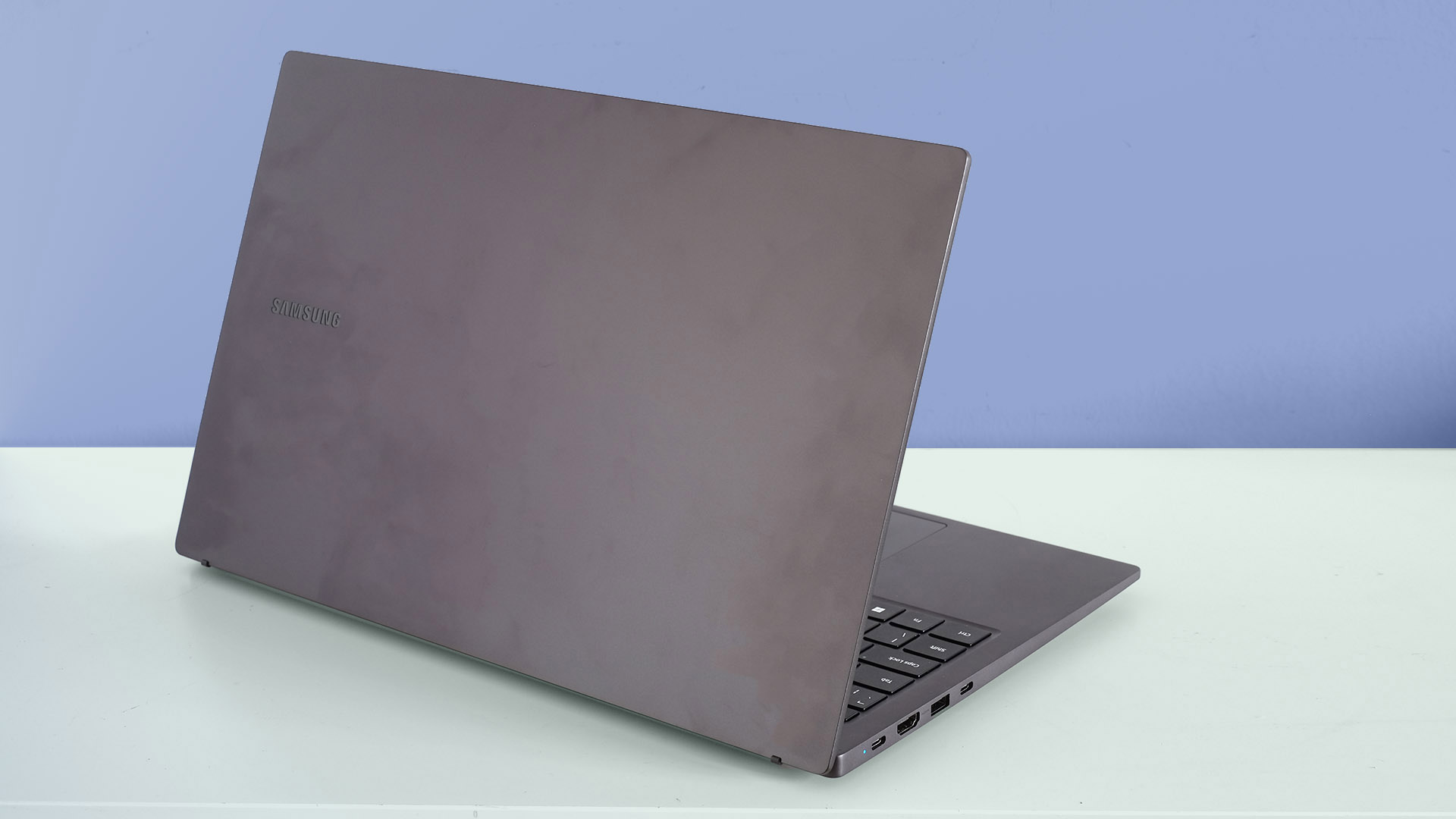
The shallower aspects of design are among the Samsung Galaxy Book 3's highlights. I started using this laptop before I'd looked into its pricing. And if you had said it started at £1000-odd, no suspicious eyebrows would have been raised.
It's because Samsung hasn't obviously downgraded the look of the Galaxy Book 3 just to ensure it's viewed as the budget model in this family. You get Samsung's signature sharp keyboard keys, and an almost purplish finish to the casing.
The lid, underside and keyboard plate are all aluminium too, which looks great and feels swish. Lots of metal and a 15.6-inch screen should signal this isn't going to be a super-light laptop. And, at 1.6kg, it isn't. However, it does have reasonably small screen borders and is only 16mm thick.
Screen size versus bulk is solid here. However, you might not be bowled over by one aspect of the build quality considering this is a metal laptop: put any significant pressure on the keyboard and this entire panel flexes up and down like a trampoline. The screen part is stiff enough, but the main part of the chassis? Not so much.
I had thought this was a result of the hinge design, which lifts the rear of the keyboard up slightly when opened enough. But, no, the keyboard still flexes quite a bit even when it rests solidly on a flat surface.
Samsung Galaxy Book 3 review: Display
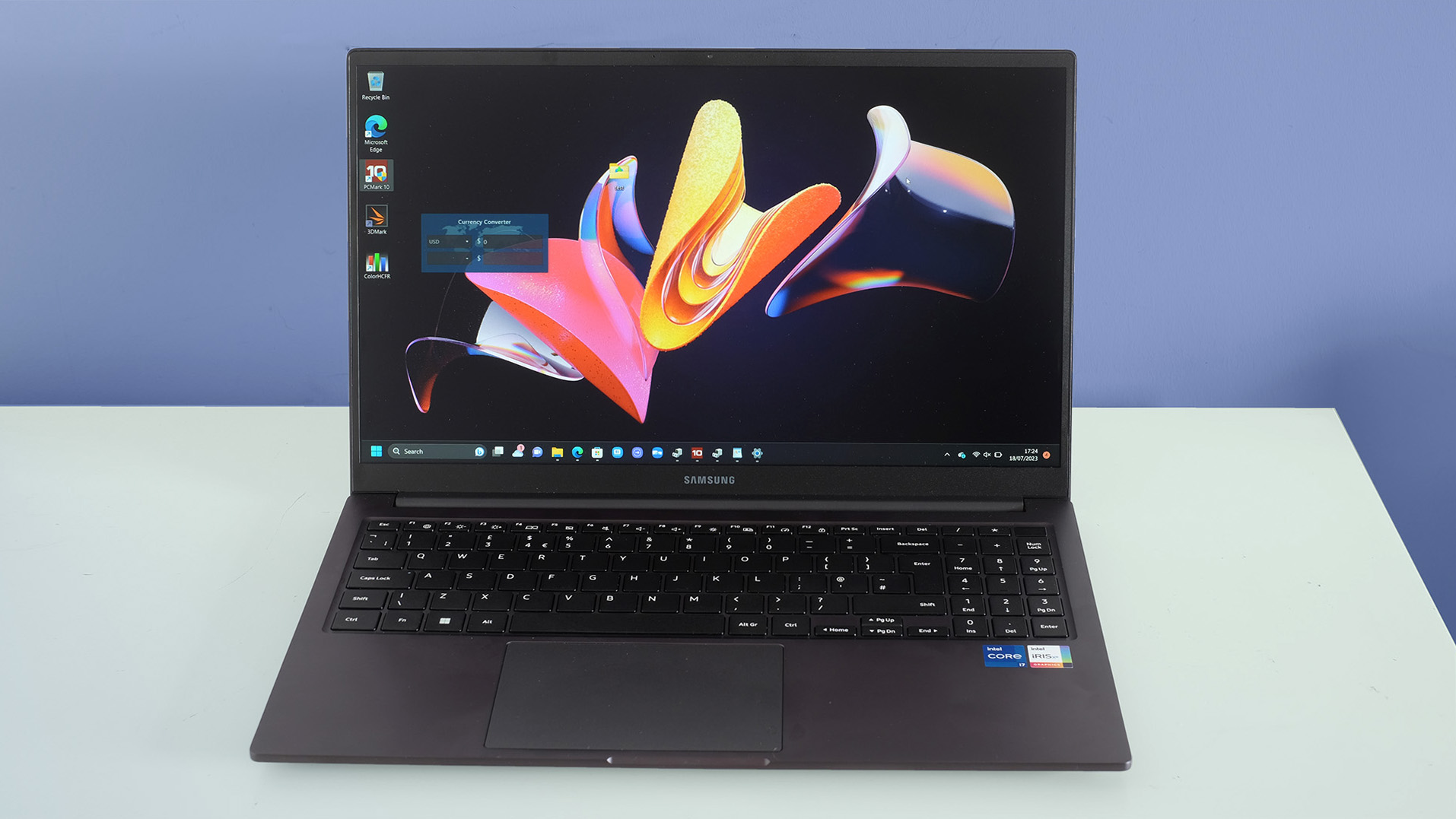
The display provides the clearest signs you're not dealing with Galaxy Book 3 Pro and Ultra models further up the range. This is a 16:9 aspect LCD screen. It's not the more popular 16:10 shape, which generally feels more roomy in apps. And it does not have one of the OLED panels Samsung had a big hand in popularising.
Most of the classic image quality aspects are okay at best here. Colour is noticeably undersaturated, covering just 60% of the sRGB colour gamut and a dismal 43% of the DCI P3 (which a lot of the best phones and laptops aim for these days).
Samsung has made the most of the Galaxy Book 3's weak panel, as after calibrating the screen colour the basically didn't change at all. But this laptop is simply incapable of rendering those deep reds, greens and blues.
Contrast isn't great either, at 900:1. And these days, 1920 x 1080 pixels spread across 15.6-inches of real-estate does look quite pixellated. This is where Samsung’s relatively pricey upgrade becomes an issue.
Dodgy display colour at £599 isn't necessarily a deal-breaker. At £949? Now we have an issue. That's the original recommended price of our Galaxy Book 3 spec.
Maximum brightness of 362 nits is decent enough, though. I found you can still use the Galaxy Book 3 in direct sunlight when doing jobs like writing documents, because the laptop has an anti-glare screen finish.
This is also why the Samsung Galaxy Book 3 has a slightly raised screen border. Its display surface is plastic, and the additional plastic acts like a rigidity-boosting exoskeleton. Typical of this style, this is not a touchscreen. But you can open it up a full 180 degrees, which is a very 'Samsung' touch.
Samsung Galaxy Book 3 review: Keyboard & Touchpad
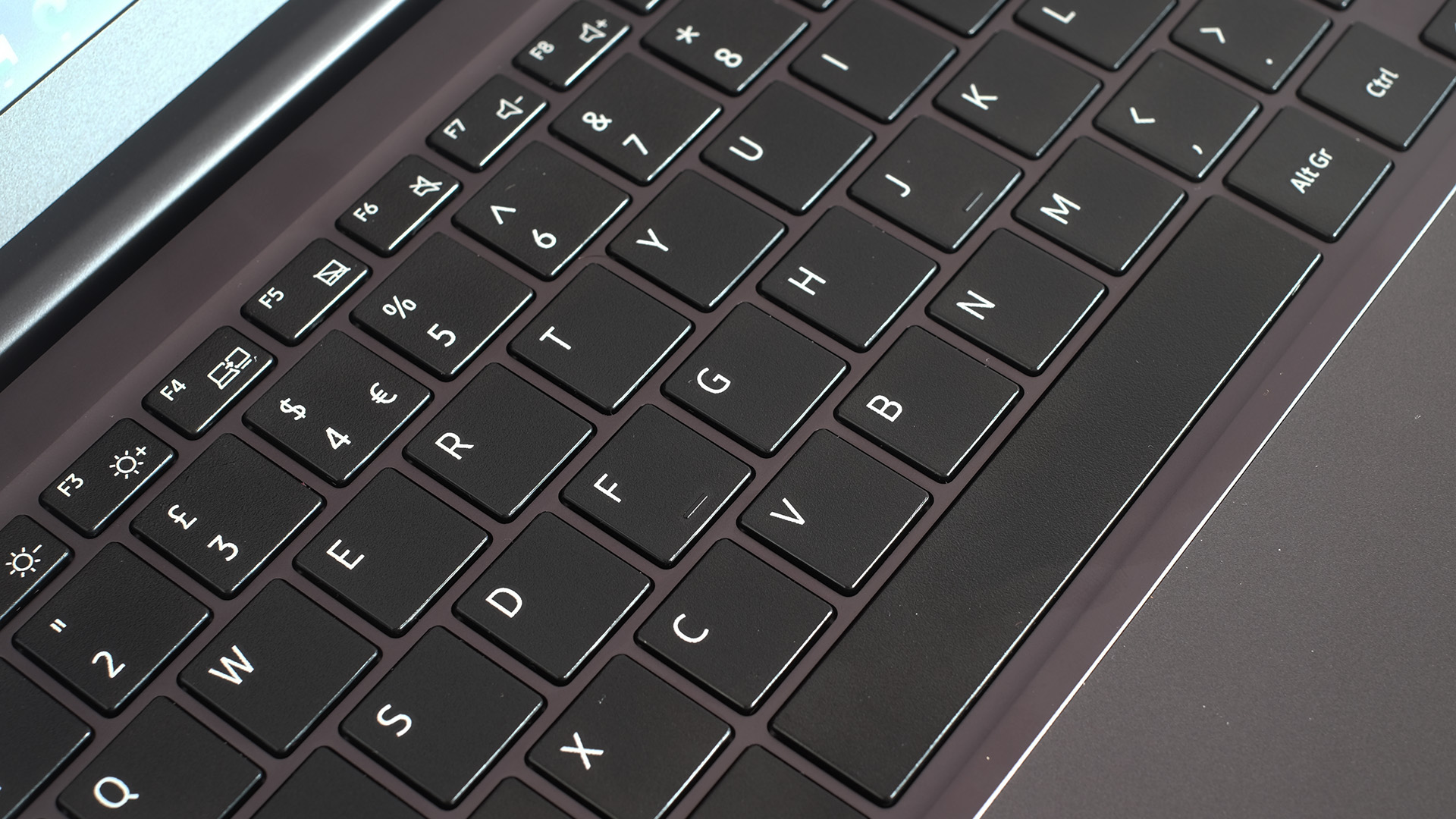
The Samsung Galaxy Book 3 has decent inputs for an affordable laptop. Its keyboard is not all that different to Apple's MacBook Magic keyboard.
It is not ultra-shallow like some previous Samsung designs, and the depress action has a nice snap to it. It's a mellower-feeling keyboard than Apple's though, and the roughened plastic surface of each key looks a little cheap.
There's also no backlight here, a feature you can get from the Lenovo Yoga 7 or HP Envy 15 ranges.
Similarly, while you might assume that the blank button in the top-right is a combi power button and finger scanner, in reality it's just a power button. The whole reason these blank ones came into existence was to avoid impinging on finger scanner hardware.
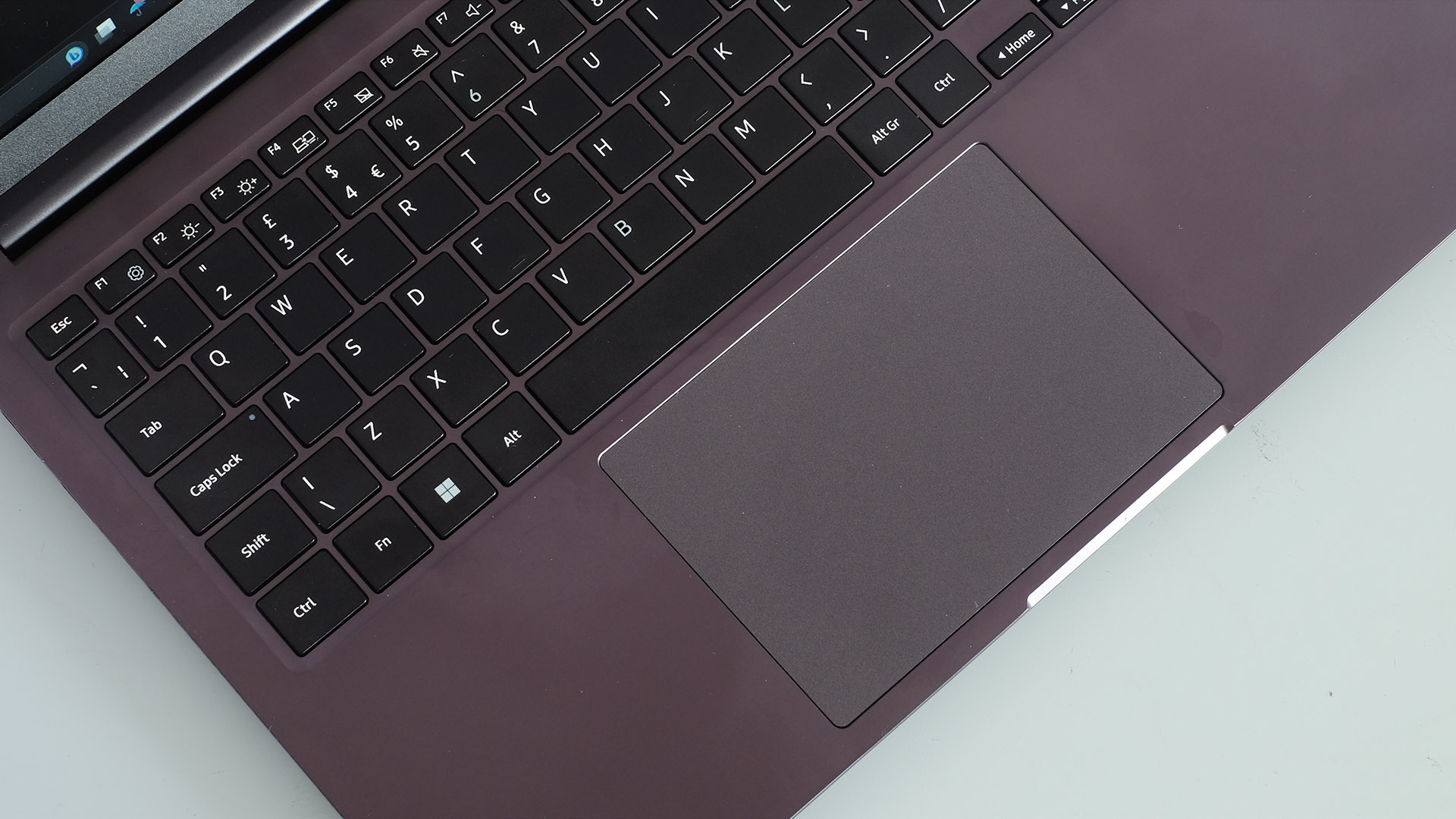
The Samsung Galaxy Book 3 touchpad is also not quite on the same level as that of a top-tier laptop either. It's a plastic pad, not a textured glass one, and therefore can feel a bit "squeaky" with faster finger motions.
However, this is one of the better plastic pads out there. Its clicker feels refined, high quality, and goes some way to forgiving the use of plastic. This is another case where a plastic pad doesn't stand out if you're shopping at the lower-end price spectrum, but becomes more of an issue with internal spec boosts that cost more and don't match that with all the external features.
Samsung Galaxy Book 3 review: Performance
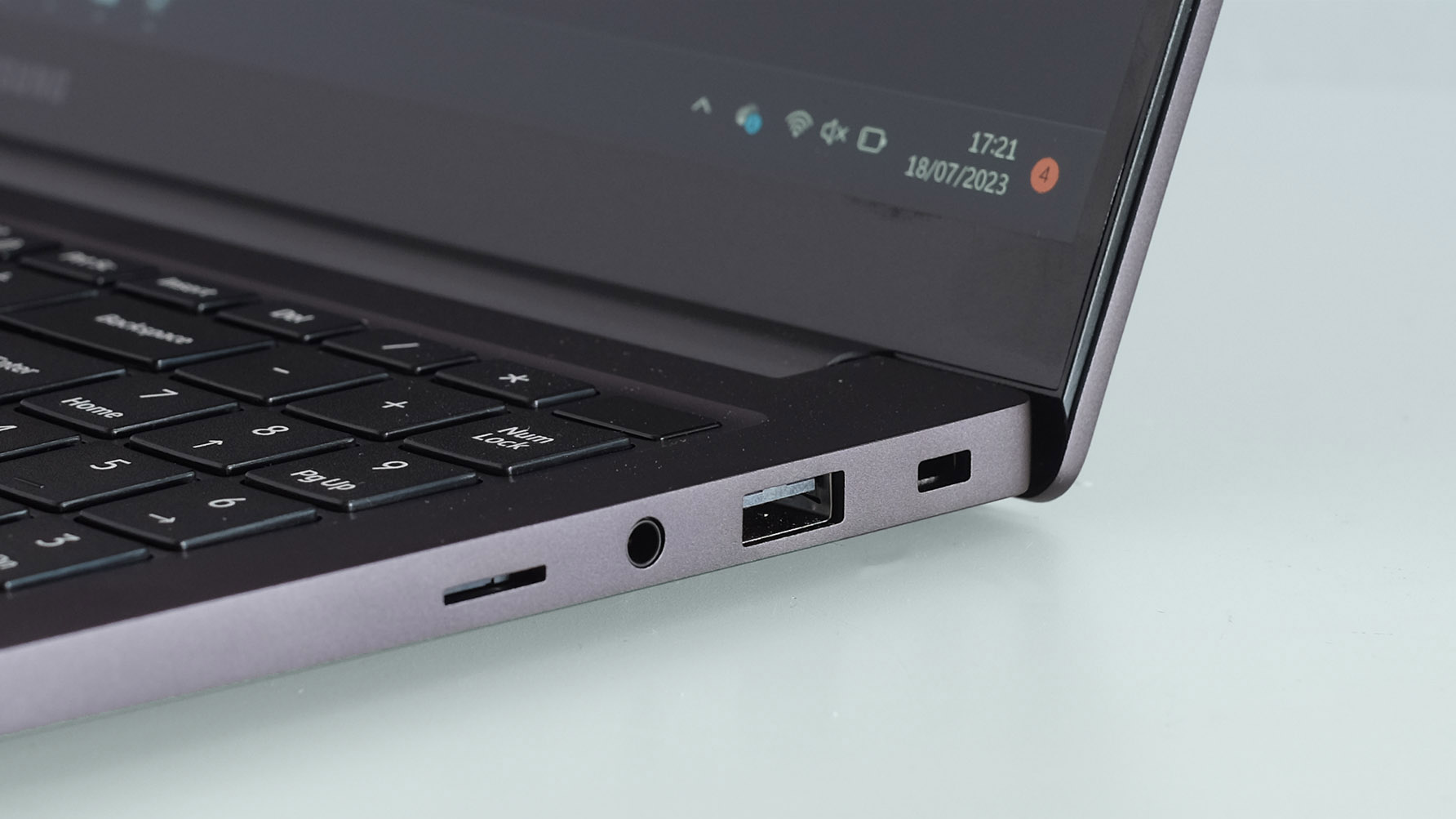
You can buy the Samsung Galaxy Book 3 with either an Intel Core i3, Core i5 or Core i7 13th Gen processor. While the bottom-rung Core i3 only has about half the processor power of this top-end review model, Samsung has managed to make all specs here viable options.
Buying the cheapest Galaxy Book 3 won't require masses of patience because all versions have 8GB RAM and fast SSD storage. As long as you don't want to do anything too taxing, like playing complicated games or doing CPU-melting jobs like video editing, you should be happy with any model of the Book 3.
They all come with at least 256GB storage. Samsung earns big kudos points for not making the lowest-end version a short route to regret.
Our top-end Galaxy Book 3 has a 512GB SSD, an Intel Core i7-1355U and 16GB RAM. It has the chops to make Windows 11 really sing. Despite my complaints elsewhere, working on this laptop for the last few days whilst writing this review has been a real pleasure.
Samsung Galaxy Book 3 review: Battery Life
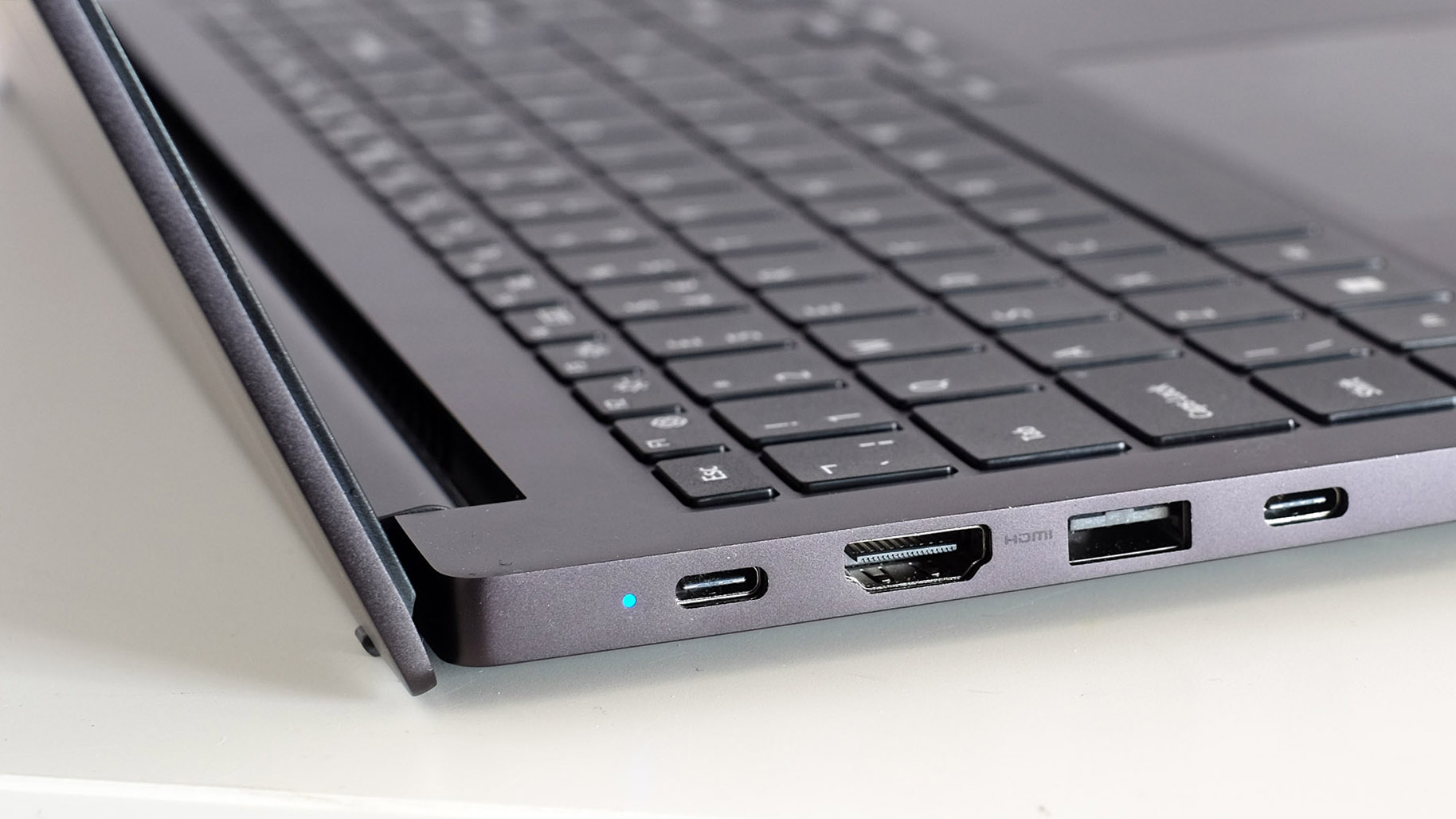
Longer battery life is one of the benefits of the use of a lower-voltage CPU. The Galaxy Book 3 has a 54Wh battery, similar capacity to a smaller ultraportable like the 51Wh Dell XPS 13.
In PC Mark 10's Modern Office battery benchmark, the Galaxy Book 3 lasted 9 hours and 41 minutes. Using it to write articles out in the blazing sunshine, including part of this review, we found a charge can last around 7 hours at maximum brightness.
Used indoors, again with just some word processing and web browsing, a more moderate brightness allows it last 9-10 hours. As long as you keep your tasks light, all-day battery life is very achievable.
Carrying the charger around with you is less of a chore than with most other laptops too. Samsung uses an adapter design much closer to that of a phone than a classic brick. It's lighter, and it takes up less space.
I'm also a fan of Samsung's “no port adapter required" approach. The Samsung Galaxy Book 3 has two USB-Cs, two larger USB-As, an HDMI port, a headphone jack and a microSD slot.
Neither of the USBs is an ultra-fast Thunderbolt connector, but this is arguably less of an issue when you already have a dedicated video output right there. It does mean you won't be able to connect an external GPU enclosure here, though. None of the connectors are fast enough.
The Samsung Galaxy Book 3's speakers are okay for this class of laptop. They don't have any real bass, but the mids are clear enough to make voices sound clear. This review laptop came with the pre-installed Dolby processing software disabled as standard, but you can switch this on to make the sound appear louder and wider.
Unsurprisingly for a more affordable laptop, the Galaxy Book 3 does not benefit from the webcam resolution upgrade revolution we've seen elsewhere over the last year or so. It uses a bog-standard 720p webcam that produces quite a dull, dithered-looking image indoors.
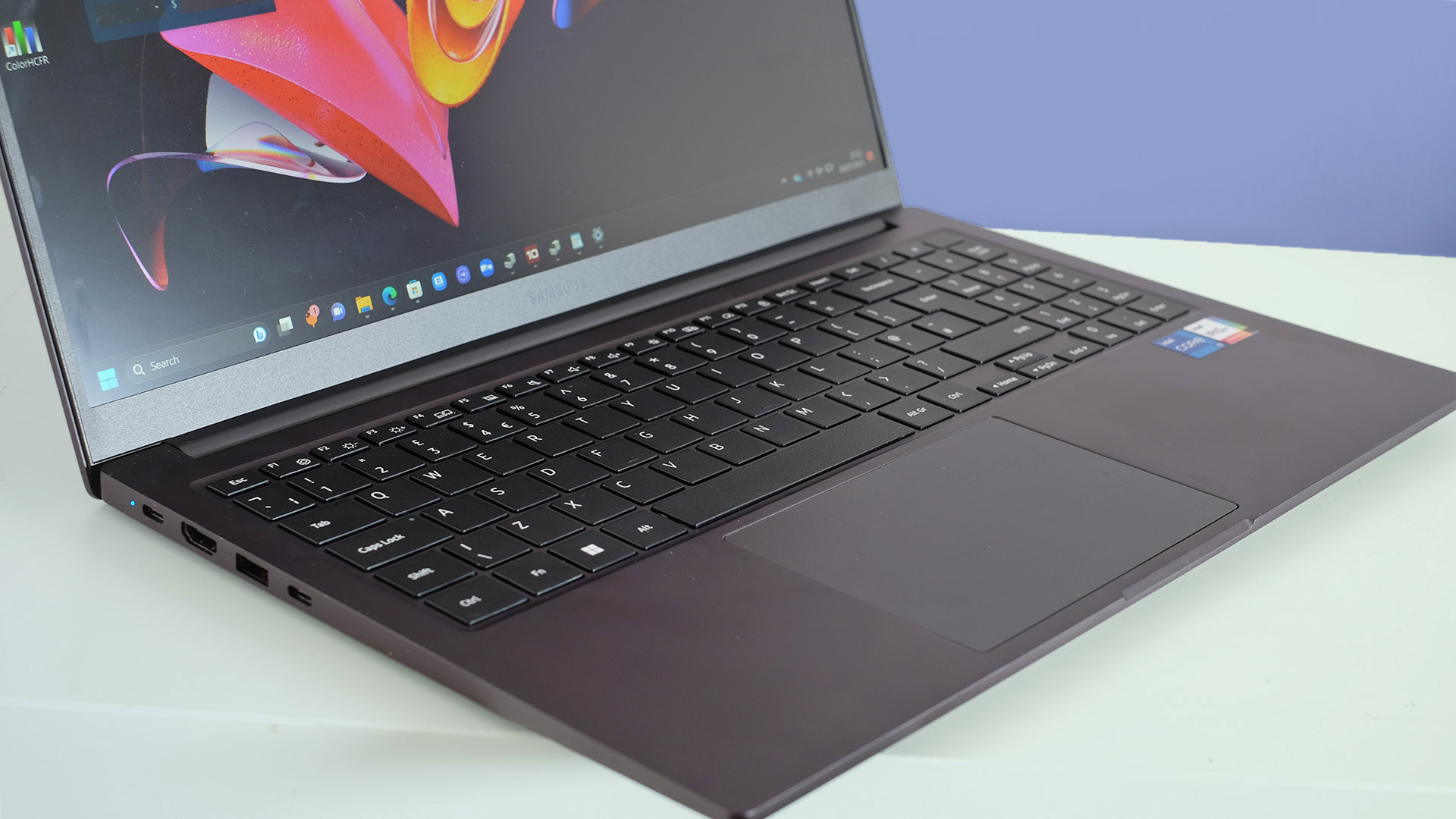
It's not the model I'd recommend to folks who are out for a larger-screen laptop becuase they want workstation-style performance, though. This is a low-power system, with a processor made for slim-and-light portable models. You should look for a laptop with at least an Intel Core i5-1340p or Core i7-1360p if raw performance is a bit concern. Or one of the just-announced Intel Ultra processors, which have better built-in graphics and AI chops.
This version of the Samsung Galaxy Book 3 and the mid-tier Core i5 one have Intel Xe graphics, powerful enough to run some games you might have played on PS4 or Xbox One. But, again, if gaming is a priority you should buy a laptop with a dedicated graphics card.
I'm also pretty happy with the amount of noise the Galaxy Book 3 produces. It does have a fan system, but never gets too loud. And if you find the fans distracting, you can change the mode to quieten it down.
Hitting the Fn and F11 keys cycles between High Performance, Optimised, Quiet and Silent modes. The quieter it is, the more the maximum power of the laptop is limited. It's not going to have a hugely noticeable effect a lot of the time, but does mean you probably don't want to use the most limited modes all that often.
Samsung Galaxy Book 3 review: Verdict
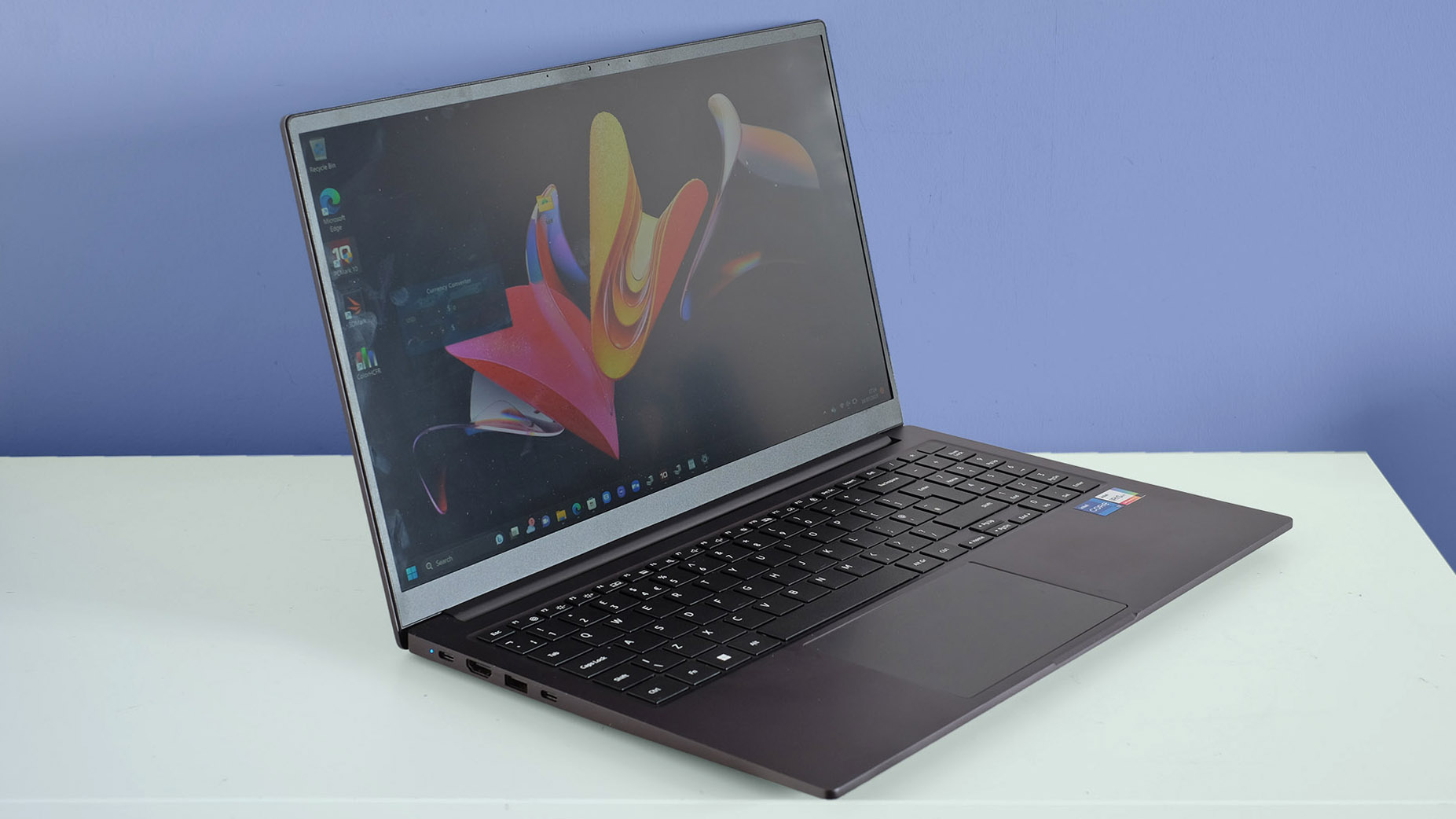
The Samsung Galaxy Book 3 is less consistent than we'd like in areas, but the lower-end models sure do provide a classy experience on a tighter budget. It has the Samsung style we associate with more expensive laptops, and for many folks the basic spec will do the job just fine. That's where this laptop is a winner.
Thanks to higher upgrade costs than you'd usually see from Lenovo or Acer, however, the shortcomings do start to stick out more if you pay for a specced-up model. That's where this laptop loses, as that includes poor colour saturation, a highly flexible keyboard plate, and a plastic touchpad surface.
In summary, therefore, if you can find the Galaxy Book 3 in its entry-level spec for a bargain price then it's got the style to punch well above the competition. Just don't pay extra for the step-up models which then fall down in various areas where Samsung's other models in the range would do a better job – as would the competition.
Also consider
If you're looking for a laptop with a fully flexible 360-degree hinge then the Lenovo Yoga 7 is a great shout. Otherwise one of the best Chromebooks might be a decent and affordable alternative.
Sign up to the T3 newsletter for smarter living straight to your inbox
Get all the latest news, reviews, deals and buying guides on gorgeous tech, home and active products from the T3 experts

Andrew is a freelance tech and entertainment journalist. He writes for T3, Wired, Forbes, The Guardian, The Standard, TrustedReviews and Shortlist, among others.
Laptop and computing content is his specialism at T3, but he also regularly covers fitness tech, audio and mobile devices.
He began writing about tech full time in 2008, back when the Nintendo Wii was riding high and smartphones were still new.
-
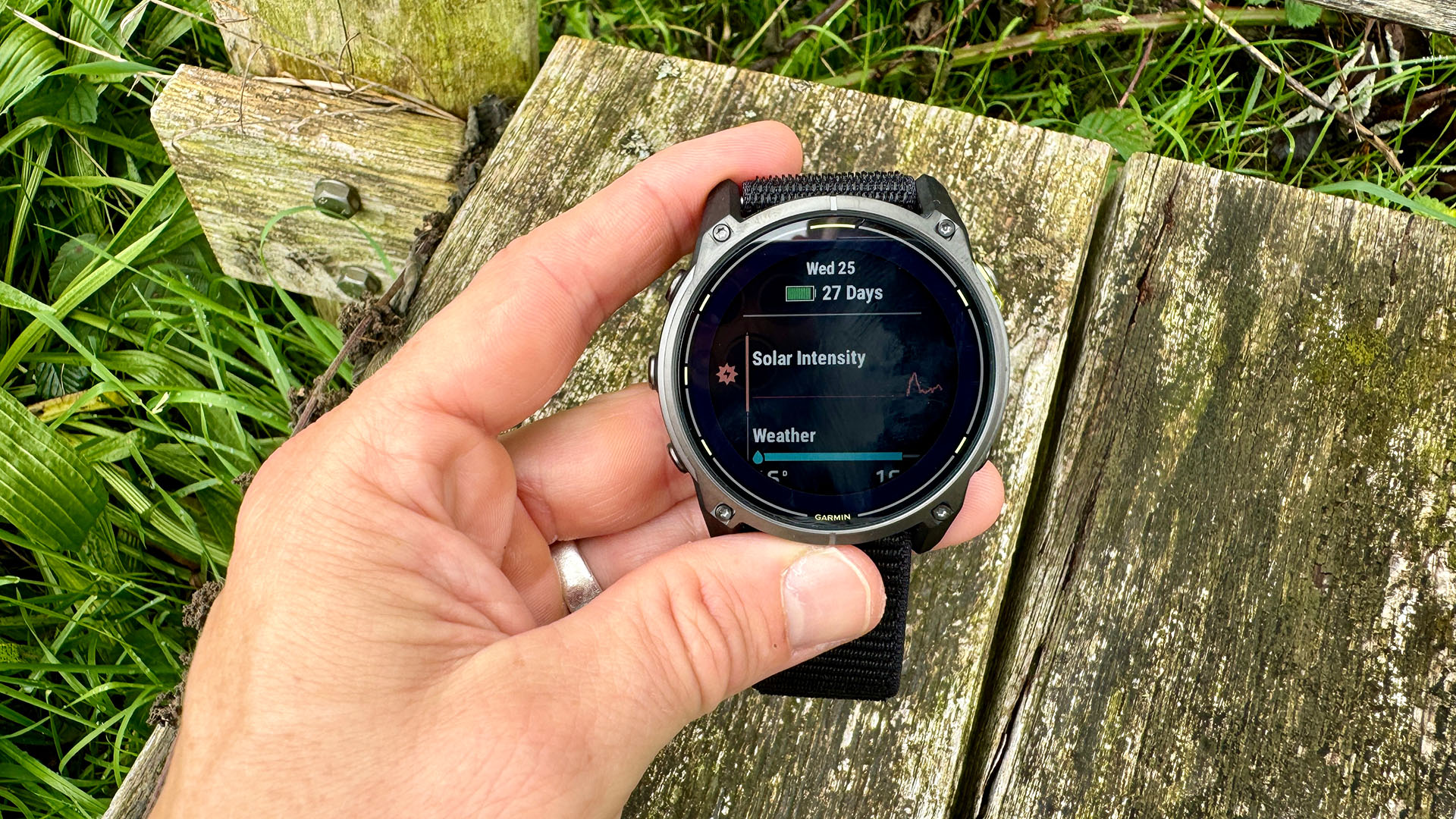 Garmin’s on a mission to update your wrist into oblivion as 100+ tweaks land on Fenix and Enduro watches
Garmin’s on a mission to update your wrist into oblivion as 100+ tweaks land on Fenix and Enduro watchesThe latest beta update looks comprehensive
By Matt Kollat Published
-
 Apple TV+'s beloved sci-fi series gets a surprise sequel and trailer
Apple TV+'s beloved sci-fi series gets a surprise sequel and trailerWondla is coming back
By Max Freeman-Mills Published
-
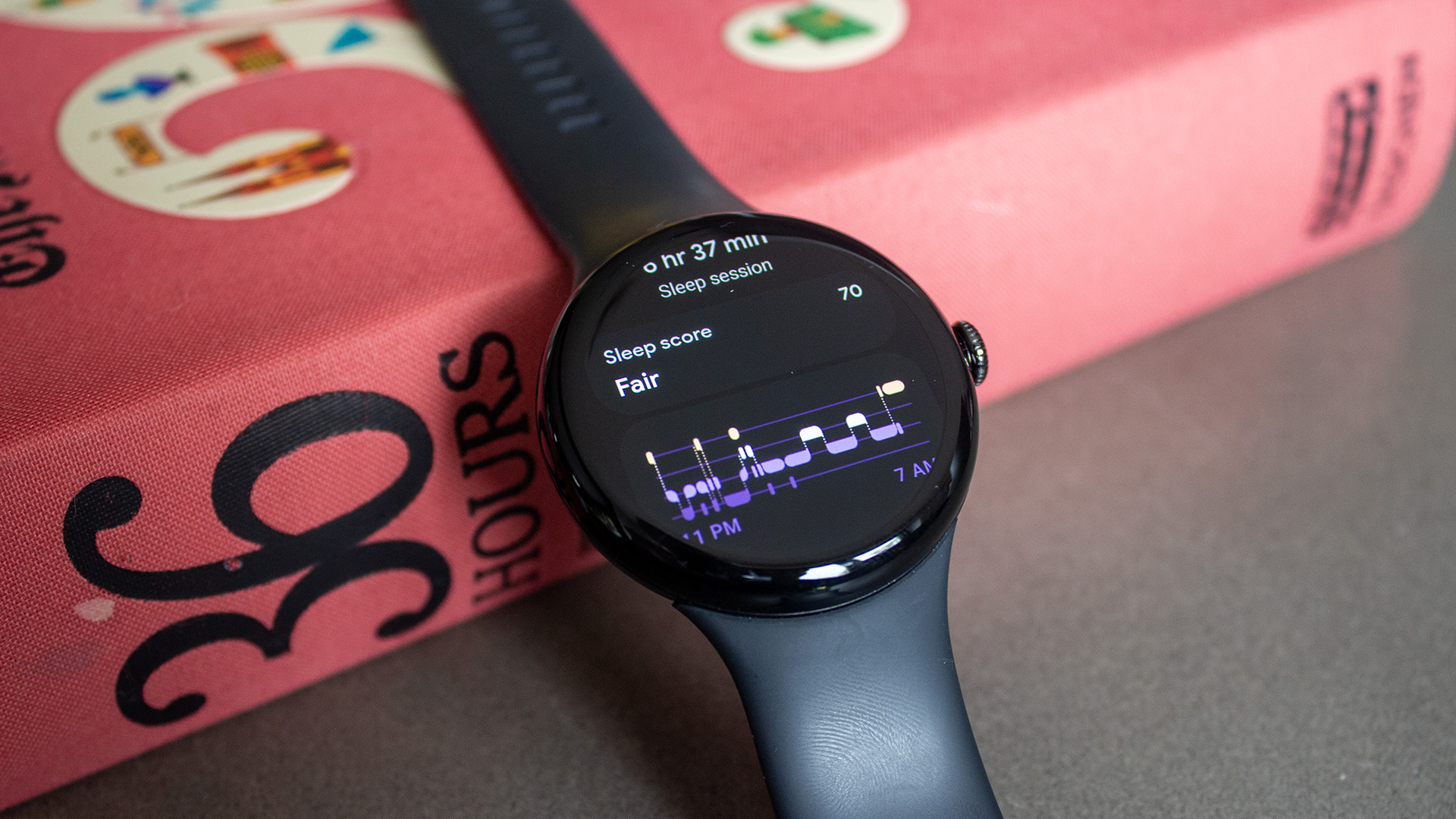 Google Pixel Watch 3 just got a potentially life-saving update in the US
Google Pixel Watch 3 just got a potentially life-saving update in the USThe latest update brings advanced heart monitoring to American wrists
By Matt Kollat Published